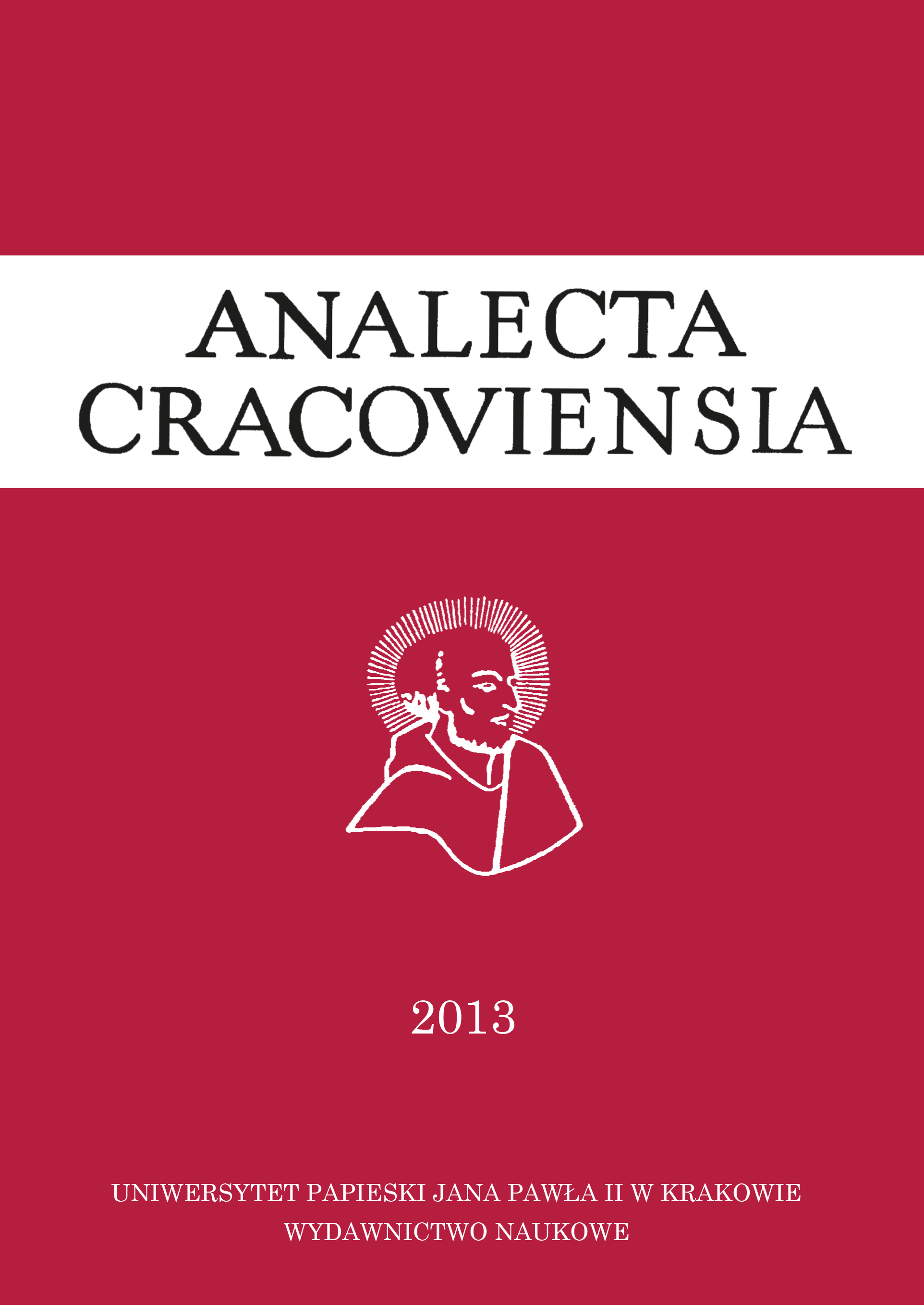Filozoficzne aspekty przyzwyczajenia
DOI:
https://doi.org/10.15633/acr.995Słowa kluczowe:
Accustoming, habit formation, habituation, process of learningAbstrakt
This article describes philosophical aspects of the group of phenomena which are closely related to an English word “habit” and Latin habitus. The author uses a term “habit” when meaning a large set of effects of the process of habituating or accustoming in multiple descriptions – the following meanings seem to be the most popular: tendency, disposition, motor skill, unreflective/automatic behavior, attitude or mental state. The process appears in two different dimensions, as a habituation, it refers to a psychophysiological process of adaptation to constantly repeated stimulus, and as a habit formation, it usually refers to the formation of automatic response to stimulus in a behavioral sense. The author signalises a wide range of subjects mentioned in this article because all mentioned phenomena are included in the Polish term “przyzwyczajenie”, which here is understood as a process or an effect of a process existing in the psychophysical sphere as a scheme, which is formed by a long-time repetition with a characteristic reduction of attention proportional to progression made in the learning process.
The main purpose of the research is to present that phenomena of the process and effects of habituating can be analyzed in a philosophical sense as an important category and described in ethical, epistemological, aesthetical and anthropological areas. The process and effects of habituating can be considered in reference to the problem of fundamental philosophical dichotomy like ‘subjective vs. objective’, ‘empirical vs. rational’ and ‘relative vs. absolute’. They can also be described in the context of values – truth, goodness and beauty.
Pobrania
Opublikowane
Numer
Dział
Licencja
Prawa autorskie (c) 2015 Magdalena Harasimowicz

Praca jest udostępniana na licencji Creative Commons Attribution-NonCommercial-NoDerivatives 3.0 Unported License.
Twórca oświadcza, że przysługują mu prawa autorskie do utworu i że nie są ograniczone w zakresie objętym niniejszym oświadczeniem oraz że utwór jest dziełem oryginalnym i nie narusza praw autorskich innych osób.
Twórca zezwala Uniwersytetowi Papieskiemu Jana Pawła II w Krakowie na nieodpłatne, niewyłączne i nieograniczone w czasie korzystanie z utworu, to jest:
- utrwalanie i zwielokrotnianie: wytwarzanie egzemplarzy utworu techniką drukarską, reprograficzną, zapisu magnetycznego oraz techniką cyfrową;
- obrotu oryginałem albo egzemplarzami, na których utwór utrwalono (wprowadzanie do obrotu, użyczenie lub najem oryginału albo egzemplarzy, publiczne wystawienie, wyświetlenie, a także publiczne udostępnianie utworu w taki sposób, aby każdy mógł mieć do niego dostęp w miejscu i w czasie przez siebie wybranym);
- włączenie utworu w skład utworu zbiorowego;
- udzielanie przez Uniwersytet Papieski Jana Pawła II w Krakowie sublicencji Creative Commons Uznanie autorstwa 4.0 Międzynarodowe (CC BY 4.0)
Uniwersytet Papieski Jana Pawła II w Krakowie udostępnia utwór na Platformie Czasopism należącej do uczelni, na licencji Creative Commons Uznanie autorstwa 4.0 Międzynarodowe (CC BY 4.0). Tym samym uprawnia wszystkich zainteresowanych do korzystania z utworu pod następującymi warunkami:
- zostanie podany autor i tytuł utworu,
- zostanie podane miejsce publikacji (tytuł czasopisma i identyfikator DOI oryginalnie opublikowanego utworu).

